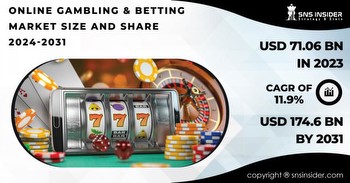Gambling Games Consumption by The Various Generations
Please Support Local Advertisers
With a projected year-on-year average growth of just over 10% – online gaming is set to be the biggest contributor to this growth in gambling operations. Though there is no doubt that online gambling is on the rise, has it currently been able to cater to all age demographic groups across the board?
Even though games need to be accessible not just through multiple platforms, it is important to understand the gambling market and actively seek means to keep clients’ interactions with these sites transparent and meaningful.
Target Audience
Legally the target age would be anyone who is 18 years and older. So far, six of the seven living generations would be eligible to participate in online gambling activities and games. Behavioural patterns across all age generations would have to be taken into consideration, to gain the most from their gaming experience.
The Greatest Generation (1901-1927)
This is seen as one of the most hardworking generations. Any gambling that has taken place within this age demographic has been the lottery and horse racing. Though they may have access to mobile devices, online gambling engagement is not prevalent and any preference seems to be more onsite than online.
The Silent Generation (1928-1945)
Please Support Local Advertisers
These are not as conservative are the older generations, yet still very cautious about standing. Growing at a time when most gambling activities were legalized, they are shown a surprising increase in online gambling sites. Their preferred gaming has been slots, cards as well as bingo gaming.
Baby Boomers (1946-1964)
Just recently entering retirement can spend a little, and have also ventured into the gambling sphere with preferred nostalgic online table games with a slight brave twist of being live bitcoin roulette, poker, roulette, and blackjack being the favorites.
Generation X (1965-1980)
They see gambling as a form of leisure. Their primary prefered platform for gaming is mobile phones and tablets. Spending is cautionary and the prefered game selections are puzzles and sporting games. Gambling games popular with this group
Millennials (1981-1995)
These are the most engaged participants in gambling of all the generational groups. They are dubbed the adventurous and rebellious type. Though extensively mobile, they tend to be frugal with their finances. Dubious of classic games, Millennials seek challenges in games where they feel they have better control of the outcome.
Gen Zs (1996-2010)
They are technology and corporate ethics savvy – they don’t just want to consume content, but also expect input and personalize content for it to be more relevant to them. This content has to cater to the experience of the betting more than the outcomes of the betting. These also include the fascination with cryptocurrency gambling and games that include live bitcoin roulette, poker, and variations of baccarat, pachinko, and blackjack holding the greatest interest.
Influential Factors
Access to disposable income and economic freedom has not meant that spending patterns are the same. Each generation has shown restraint in online gambling spending based on their characteristics.
With the projected market growth, clients of a gambling site are more naturally going to be concerned with security issues on fraud and cheating. Vigilance on licensing authority and regulatory body affiliation would ensure that sites are run ethically, lawfully and safely.
Summary
The use of Blockchain technology has also assisted in ensuring safe and transparent transactions between the site and the client. Where Baby Boomers are happier playing free games, Generation X prefers credit card payment and the Millenials prefer to use debit cards through e-wallets. There is a concern that within Generation Z there may be some reckless spending behavior as there is little focus on caution but on the experience of playing.

































